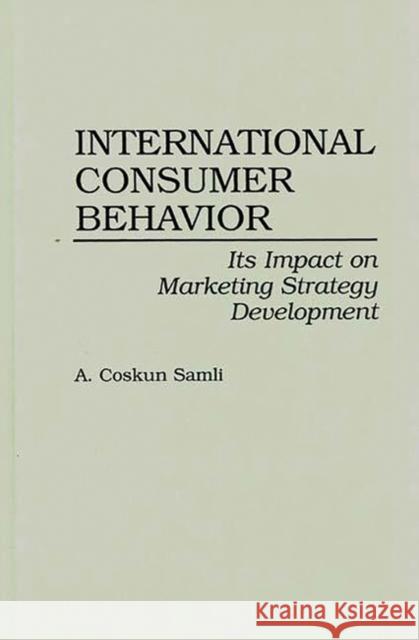International Consumer Behavior: Its Impact on Marketing Strategy Development » książka
International Consumer Behavior: Its Impact on Marketing Strategy Development
ISBN-13: 9780899308838 / Angielski / Twarda / 1995 / 208 str.
Samli sets a foundation for analyzing the impact of culture on behavior and how this impact may vary in different cultures. By understanding consumer behavior patterns in different world markets, international marketers can serve the special needs of international consumers. Cultures can be grouped and their impact on the consumer behavior can be detected. Understanding consumer behavior in different culture groups is the foundation of international marketing success.
In this bold first effort to assimilate the knowledge about international consumers, Professor Samli asserts that international consumer behavior is not just a simple extension of our knowledge about American consumer behavior. Rather, it is primarily culture-driven. Whereas culture is a given in studying consumer behavior in the West or in North America, foreign cultures must be understood before parameters of international consumer behavior patterns can be established. Understanding these patterns is the essence of successful international marketing. This orientation explains why successful marketing plans must be different in different world markets and that these markets are not at all homogeneous. Successful international marketing plans must dwell primarily on differences rather than similarities among international consumers. The key aspects of behavior patterns are connected to marketing plans throughout the book.
Social class, hierarchy of needs, and formal and informal group memberships play quite different roles within the given constraints of culture. As a result, involvement, learning, and experiences of the individual form differently in different world markets. This process needs to be deciphered and understood so that adequate communication is established with consumers everywhere. Both marketing scholars and marketing practitioners need to understand that marketing plans around the world should be keyed to consumer needs and behavior patterns. These are the essence of competitive advantage.











